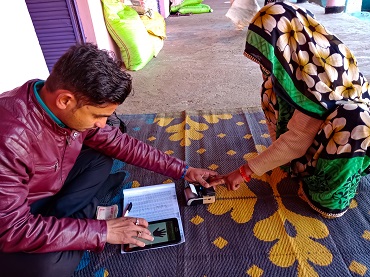Blog
The Critical Role of DFIs in Preserving SME Solvency in a Pandemic

A virtual roundtable summary.
While all businesses have been impacted by the COVID-19 crisis, the impacts have been especially profound for SMEs and the institutions that support them. As these businesses are forced to close due to lockdowns, SMEs are looking to preserve their liquidity and respond to their immediate financial and operational needs. As a result, development finance institutions (DFIs) and banks are shaping their policy responses around the needs of these enterprises, hoping to provide life-support to struggling institutions.
In the most recent weekly COVID-19 mitigation webinar, the SME Finance Forum focused the roundtable on the importance of DFI’s in preserving the SME sector through liquidity and solvency measures. Through a moderated panel discussion, Ines Rocha (EBRD), Michel Bergeron (BDC), Jessica Espinoza (DEG), Matthias Adler (KfW), Wasim Tahir (CDC Group), Jeroen Harteveld (FMO) and Martin Holtmann (IFC) (1) discussed current SME needs and the critical role DFI’s play in providing capital as well as advisory support during this global pandemic.
A central focus of this panel discussion was the importance of preserving liquidity for SMEs as the crisis evolves. Ines Rocha highlighted that many businesses are requesting payment deferrals, as even SMEs with resilient business plans could not have anticipated business disruption at such a massive scale and at such speed. In addition to mandatory closures due to lockdowns, many SMEs have been impacted by problems with delivery and supply chains. The majority of SMEs have experienced precipitous revenue loss, severely decreasing their cash positions as they quickly burn through any reserves they may have held. Most SMEs don’t have enough of a safety cushion to last several more months, creating long-term concerns about solvency. In order to support the demand for liquidity, DFI’s must also support local banks and specialist financial institutions so that they are able to issue loan moratoria and ease repayment conditions. Coordination between DFI’s and these local banks is vital, not only for support but also to ensure that lending practices remain relatively consistent across markets and don’t lead to further distortions that could lead to new problems in the long run.
Many panelists noted that in addition to requests for increased liquidity and loan moratoria or deferrals, SMEs are seeking guidance and advice on how to maintain their businesses in current circumstances. In response, several DFIs are offering free coaching or webinars to clients on topics such as cash management in crisis or how to protect their workers. Business Development Bank of Canada (BDC) is now providing limited free consulting to some clients to examine their business plans and help manage responses to the crisis. Similarly, many local banks are launching webinars that teach SMEs how to move their services online and expand market access. As Wassim Tahir noted, since DFI’s have a broader reach, they can collect data on different circumstances SMEs are facing and create responses that meet the most need. Surveys of SME needs have led to the development of new products situated to meet short-term liquidity needs, including DEG’s launch of a new liquidity lending program that offers liquidity lines with shorter maturities.
Another key takeaway from the roundtable is the need for cooperation between DFIs, and also between DFIs and country governments. KfM is partnering with some governments to link SMEs to government assistance programs, as many SMEs may not be aware of these government resources or may have trouble applying for them. Furthermore, DFI cooperation with governments to shape response policy is also essential, as major relief programs are often top-down, and primarily benefit larger corporations. In this regard, Martin Holtmann stated that the IFC is advocating that government responses include support to the SME sector and the financial institutions that support the SME sector. In order to ensure a vibrant private sector and SME marketplace, DFIs cannot focus just on short-term solutions but must also collaborate with governments on long term solutions.
The panel also spoke about the importance of addressing gender inequality in COVID-19 response programs. Data has shown that women entrepreneurs have been more vulnerable and exposed to this crisis as access to credit is already more difficult for women. Jessica Espinoza stated that DFIs need to ensure that response programs have a gender lens and that the COVID response programs are reaching women-owned SMEs.
One of the central conclusions from the 2008 financial crisis was the need to build mechanisms that address inequality into the response or risk perpetuating it.
Overall, the panel agreed that coordinated and complementary responses by DFIs are needed to respond to this crisis so that short term responses to preserve SME solvency and long-term recovery are in the service of decreasing the inequality that this crisis has highlighted. Through the capital and advisory services offered by DFIs in the short term and the ultimate longer-term measures taken for recovery, DFIs must play an essential role in shaping effective and equitable policy responses moving forward.
***
If you are a member of the SME Finance Forum, you can access the slides and the recording in this link.
(1) Acronyms: European Bank for Reconstruction and Development (EBRD), the Development Bank of Canada (BDC), KfW and its subsidiary DEG of Germany, the CDC Group of the United Kingdom, the Dutch Entrepreneurial Development Bank (FMO), and the International Finance Corporation (IFC)
















































